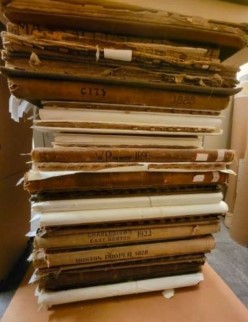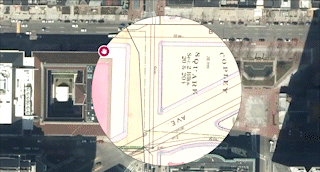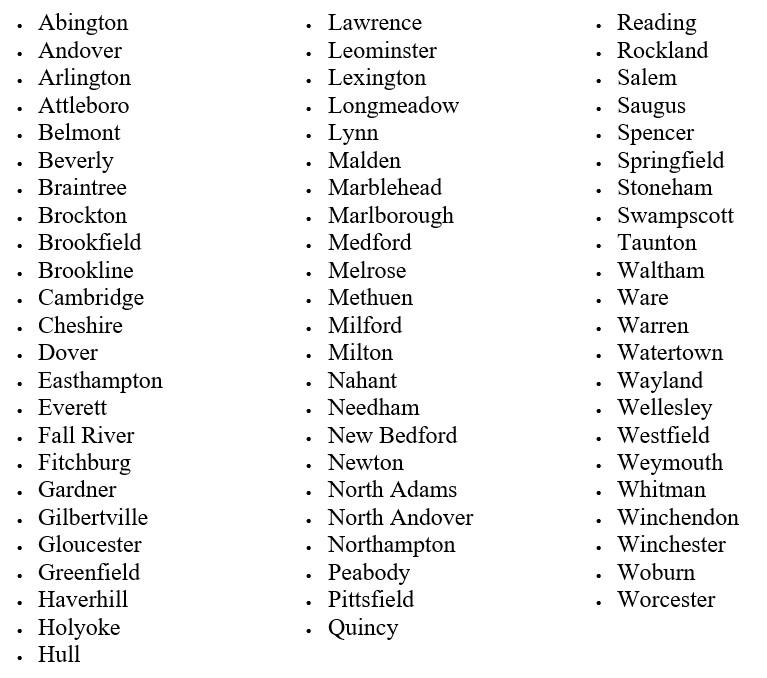Sponsor an Atlas
The Leventhal Center has an extraordinary collection of urban atlases dating from the late 19th to early 20th centuries, one of the most important sets of documents for depicting how our city and region have changed over time. Our Atlascope tool has transformed 101 of these atlases into a web interface overlaying the modern map, covering historic Boston and its immediate surrounding towns. The tool has facilitated a variety of goals, including research on local history, genealogy, urban development, and fulfilling general discovery.
The LMEC aims to expand Atlascope’s coverage to towns and counties across the state of Massachusetts as early as this spring. With your help, Atlascope can be used as a tool for historical research & discovery in your town, too—and across our whole state.

Physical urban atlases, while fascinating, are large, bulky, and can be difficult to parse through to find the information you’re looking for.
What is Atlascope?
Suitable for browsing on a computer or mobile device, this website makes it easy to compare properties, buildings and owners to tell stories about places through the years. With new features to empower storytelling, annotation, and discovery, as well as connections into other Massachusetts digital collections, Atlascope is a great tool to answer questions about property ownership, genealogy, urban transformation, and broad questions about historic and geographic change. As Boston Globe columnist Mark Feeney recently put it, Atlascope is “a reminder of the extent to which these renderings of the past that are on display, the city as was, directly relate to visitors’ present, the city as is."

Atlascope can easily be used on a tablet or your phone to discover local history as you wander around the City of Boston.
How Atlascope is Used
Boston City Archaeologist Joe Bagley uses Atlascope frequently in his work, describing it as an invaluable tool for his historic research. In 2020, Atlascope helped Bagley and his team uncover the origins of a mysterious sinkhole that appeared in Ronan Park in Dorchester and the subsequent discovery of a 19th century well.
Students and individuals of all ages also use Atlascope to open up historic inquiries. Last summer, the Boston Preservation Alliance worked with Boston Public School students from the Lilla G. Frederick Pilot Middle School, who used Atlascope in combination with other primary sources and first-hand accounts from residents to explore Grove Hall, Upham’s Corner, and Fields Corner to tell stories about these Dorchester neighborhoods. Scholarly researchers, teachers, and university classes have used Atlascope for in-depth research projects around urban change and local history. For example, students at College of the Holy Cross recently completed a semester-long research project about the buildings and landscapes of Boston that were destroyed by the Central Artery. Two scholars (and recent recipients of the Leventhal Center’s Small Grants program) are using Atlascope to research Boston’s Little Syria, which thrived between the 1880s and 1950s.

The overlay of a 1902 Bromley Atlas on top of present day Boston in Atlascope.
Finally, Boston Public Library users and Leventhal Map & Education Center patrons from all over the city and surrounding areas use Atlascope as a tool to research their family histories, satiate curiosities about historical change over time, and discover new stories that emerge from the woodwork when examining these fascinating cartographic items.
Expanding Atlascope
We began Atlascope by starting with atlases of historic Boston and its surrounding areas. However, these atlases exist in towns across the state, and our goal is to expand Atlascope to cover even more of Massachusetts. It can take up to 60 hours of skilled staff and intern labor to transform a single atlas from printed pages into a modern, readable web-layer, a time-consuming process.
Are there atlases of other Massachusetts towns you would like to see added to Atlascope? The Leventhal Center is in the process of digitizing and geotransforming historic atlases from towns and counties across the state of Massachusetts. We are currently fundraising for the base amount of labor it takes to ingest each physical atlas into Atlascope for usage and discovery. If you would like to help support or be a part of this project, please email info@leventhalmap.org,and a member our staff will be in touch with you.
Current cities and towns we have atlases for include:

Atlascope Credits: Digitization and preparation of atlas layers currently in Atlascope was made possible with funding from the Council on Library and Information Resources and the Associates of the Boston Public Library.